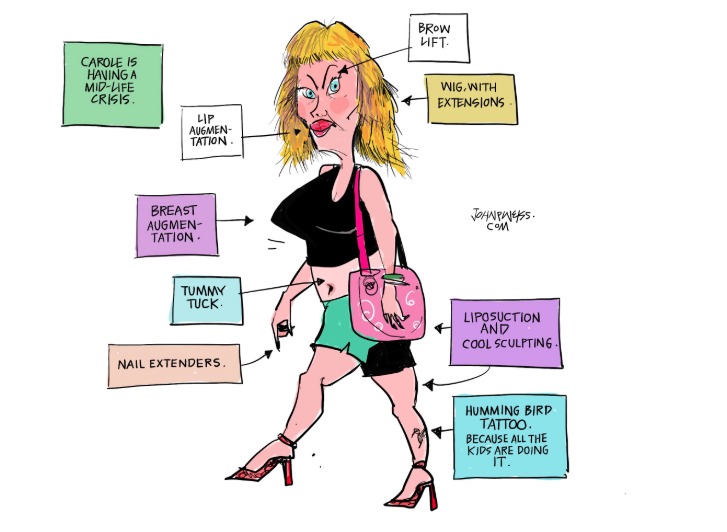How long midlife crisis last
How Long Does a Midlife Crisis Last?
What is a Midlife Crisis?
Before addressing how long a midlife crisis lasts we need to address what a midlife crisis is. According to the dictionary, a mid-life crisis (first used by Canadian psychologist Elliott Jaques in 1965) is ‘a loss of self-confidence and feelings of anxiety or disappointment that can occur in early middle age’.
When Does a Midlife Crisis Start?
When does a midlife crisis start (if at all) and how long does it last? As you may expect, there are no definitive answers to these two questions; as with much in life, it will depend on the individual.
Some people may begin to question their lives in their 30’s and completely re-invent themselves at that stage. For others the trigger for a rethink maybe children leaving home and, as people are becoming parents later in life, that may well not be until they reach their late fifties. However, the term is generally thought of as encompassing the years between the ages of 45 and 64.
How Long Does a Midlife Crisis Last for Men and Women?
There is little scientific research that formally identifies how long a midlife crisis lasts but anecdotally it is thought that it lasts between three to ten years in men and two to five years in women.
Why the difference? Well, the female menopause is one of the main stresses for women and the peri-menopause (the time in the run up to the last menstruation) lasts an average of four years – a rather neat correlation. Although there is evidence that hormonal changes (lowering of testosterone levels) in men may play a part in a male midlife crisis, it is less clear cut than for women and it is more likely that men are affected more by the perceived loss of youth than by a drop in testosterone.
How Do You Know You’re in a Midlife Crisis?
Below is a list of six commonly perceived stages of a midlife crisis which may help you identify if you, or a loved one, have entered a crisis:
Stages of a Midlife Crisis
- Denial: the urge to deny the inevitability of aging; suddenly paying a great deal of attention to the way they dress: dying hair (to hide the grey): joining a gym: having plastic surgery: staying out partying etc.
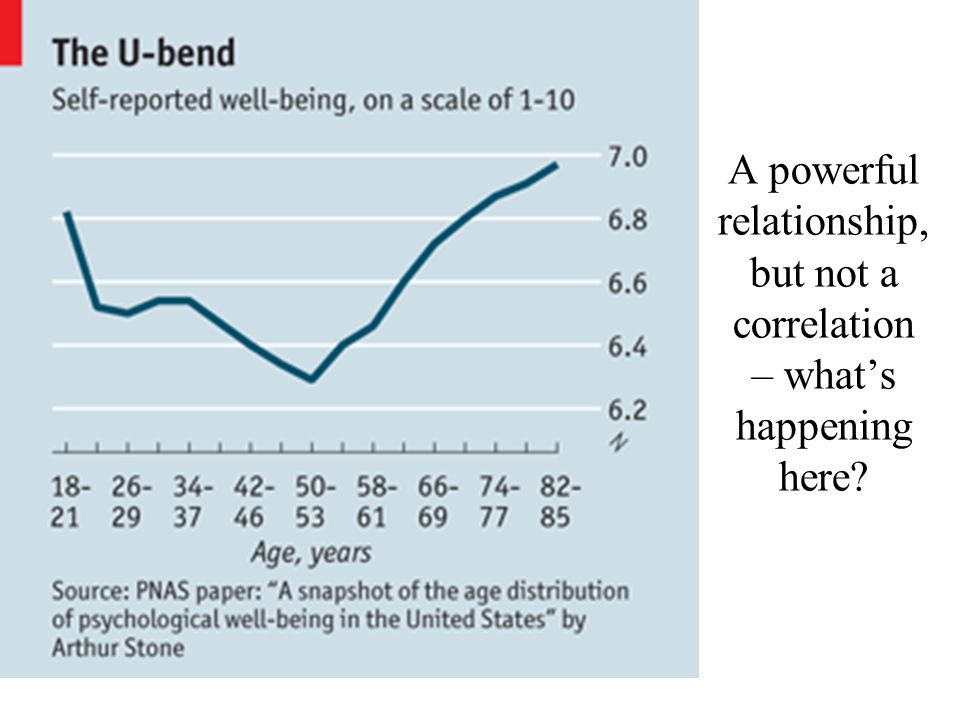
- Anger: riling against the perceived unfairness of life and the realisation that there is nothing can be done to stop the ageing process. This can be the ‘run away’ stage when the urge to escape the inevitability of growing older overwhelms
- Replay: attempting to recapture the past. This can manifest itself in several ways such as having an affair, doing things they wouldn’t have considered before, leaving a job, wanting to travel to places they’ve never mentioned before, becoming irresponsible (acting like a teenager)
- Depression: the lowest point in the cycle when the realisation that despite the actions in the Replay stage life has not changed as they may have wished (unless a true life purpose emerged as a result of the Replay stage) in which case this stage and the next (Withdrawal) may not be experienced
- Withdrawal: coming to terms with what they have done in the Replay and Depression stages; facing up to the pain they may have caused others and either rebuilding damaged relationships or withdrawing from them completely, which could, in some circumstances result in separation and divorce from the spouse
- Acceptance: life has changed, there is no going back, accepting and embracing whatever is the new reality
Of course, within these six areas every individual will react differently. For some people the Replay stage will be the point they discover, or rediscover, a true life passion or purpose which they may have denied (or allowed to be subsumed in order to earn a living) and by choosing to follow this path in midlife they will actually be finding new happiness and fulfilment.
For some people the Replay stage will be the point they discover, or rediscover, a true life passion or purpose which they may have denied (or allowed to be subsumed in order to earn a living) and by choosing to follow this path in midlife they will actually be finding new happiness and fulfilment.
The length of each of these stages will also vary according to the individual and, as noted above, not everyone will experience all of them. For some, the introspection of re-evaluating life may actually be so cathartic that the entire concept of a ‘crisis’ is redundant and their later years thus become some of the happiest of their lives.
We are as a society demanding of absolutes, however, in the case of midlife crises there aren’t any, indeed many scientists who actually dispute whether midlife crises actually exist at all. There is little evidence that people undergo midlife crises in Japanese and Indian cultures, raising the question of whether a it’s mainly a cultural construct; both of those societies being far less youth centric than the West. That being said, midlife does mark a significant change in lifestyle for most and it’s important to adapt.
That being said, midlife does mark a significant change in lifestyle for most and it’s important to adapt.
Some research appears to demonstrate that individuals who change jobs/careers before midlife have a greater sense of generativity (of understanding the need to help the next generation) and a higher motivation coupled with a reduced feeling of stagnation. This could lessen the feelings of overwhelm midlifers sometimes express at the ‘culture of youth’ in western society – greater involvement with younger people and/or an ability to readily adapt to changing times may mean a crisis could be avoided.
Midlife should be a time when an individual is able to finally be themselves; a time when children have flown the nest, finances should be more stable and more free time is available. If you find yourself (or spot a loved one) looking back with regret try and stop yourself by instead looking forwards to all the things you could do now – take the trip of a lifetime perhaps, downsize to a smaller property (and free up some cash in the process), take up a new hobby, write that book, learn something new!
Perhaps it’s time to stop thinking of a ‘midlife crisis’ as a problem to be overcome or undergone but as a natural part of life a time to address the deepest part of oneself and set the course for the remainder of lifto see it as an opportunity for rebirth rather than stagnation.
Jo Rosser
Jo founded Success Stream. With over 30 years experience in hotels, leisure, technology and sales she has worked in many a stressful and demanding environment. She now focuses her time on helping others overcome stresses and hurdles in their lives and ensuring they reach their true potential.
Similar Posts
Health
What is a Wellbeing Coach?
ByJo Rosser Updated on
A wellbeing coach is a trained professional who helps guide people through challenges in their…
Signs And Treatments – Forbes Health
A midlife crisis is defined as a period of emotional turmoil in middle age, around 40 to 60 years old, characterized by a strong desire for change. While navigating change is an inevitable part of the human experience, middle age can bring unique life transitions unlike earlier and later phases in life, including an increasing awareness of mortality.
Criteria for midlife crises are not well-defined and may differ from person to person, but they’re often marked by strong feelings, unhealthy coping skills and behavior changes, according to experts.
Understanding what a midlife crisis is, how to identify the signs and symptoms, and what treatments are available is important for recovery from (or supporting a loved one through) a midlife crisis and allowing the midlife years to be a time of healthy living, growth, joy and satisfaction.
FEATURED PARTNER OFFER
Partner Offers feature brands who paid Forbes Health to appear at the top of our list. While this may influence where their products or services appear on our site, it in no way affects our ratings, which are based on thorough research, solid methodologies and expert advice. Our partners cannot pay us to guarantee favorable reviews of their products or services
Get $100 Off Your First Month At Talkspace! Using FORBES100 at checkout
Talkspace Online Therapy
All ratings are determined solely by our editorial team.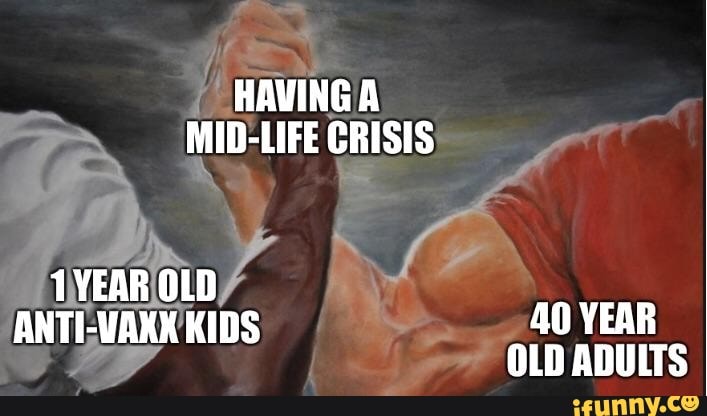
- Thousands of licensed therapists
- Start immediately
- Easy matching to find you the right therapist
- Message your therapist 24/7
- Receive ongoing support via secure messaging and live video sessions
- Insurance accepted. Insured members on average pay a $20 copay or less
Get Started
On Talkspace's Website
What Is a Midlife Crisis?
“A midlife crisis is a period or phase of life transition when a person begins to question the things that they have accomplished or achieved and whether those same things still provide a sense of fulfillment and meaning,” says Michael G. Wetter, Psy.D., a clinical psychologist practicing in Los Angeles. If not, a person may begin to question what can bring meaning and fulfillment to the later part of their life that may be missing or unexplored, he adds.
This questioning may lead to an abrupt change in occupation, commitment to relationships or hobby exploration, says Dr.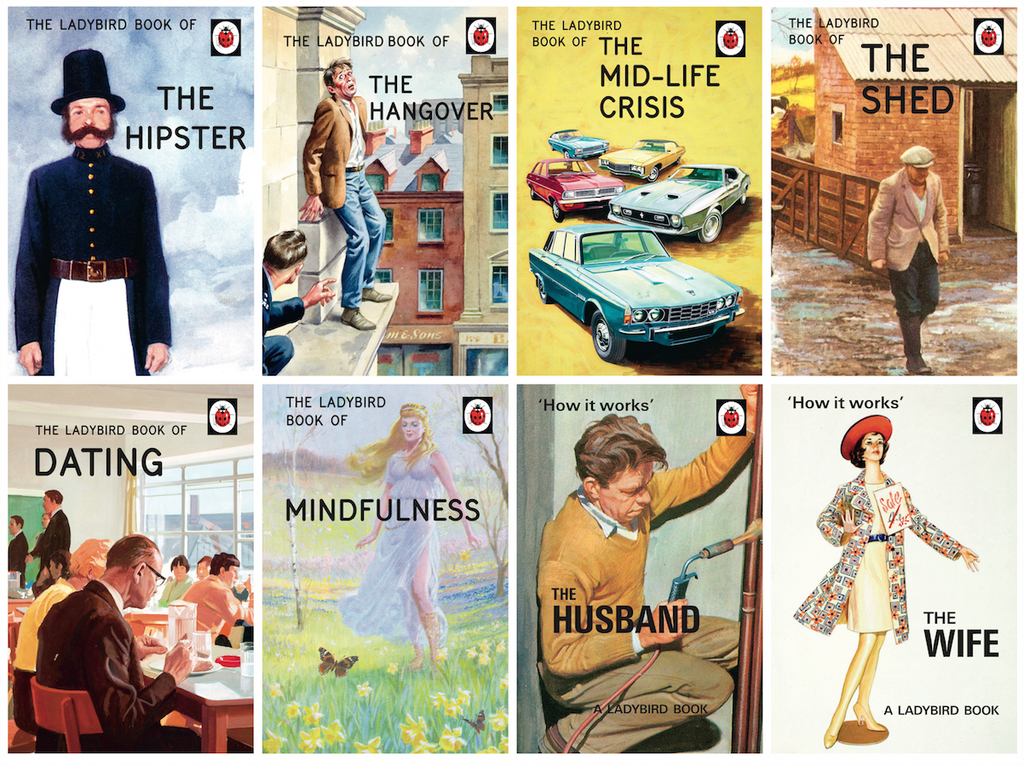 Wetter, but it may also include more impulsive behaviors and actions, such as risky spending habits and health concerns.
Wetter, but it may also include more impulsive behaviors and actions, such as risky spending habits and health concerns.
However, the changing perspective and attention to mortality that occurs during a midlife crisis doesn’t always manifest in negative symptoms and may instead lead to a more concentrated effort and devotion to family or a stronger desire to focus less on work and more on living, says Dr. Wetter.
“While there is no one common sign, more often than not, it represents a shift in perspective relative to one’s self-image and engagement in life,” he adds.
What Causes a Midlife Crisis?
A midlife crisis can be triggered by any number of major factors, including divorce, the death of a loved one, boredom or a significant life event, says Krystal Jackson, a licensed therapist and the CEO of Simply Being Wellness Counseling in Farmington, Connecticut, who helps middle-aged clients navigate life transitions. The shift occurs when a person’s identity and their purpose in life are in direct conflict, usually due to aging, she says.
Midlife can be a time of many changes: You might see an increase or decrease in responsibilities, such as your children becoming more independent or having to care for an aging parent; you may realize your career path is less than satisfactory and regret missing out on pursuing work you consider more meaningful; you may start to realize your physical abilities have declined with age, your relationships are not what fulfill you or that you missed a major goal you wanted to achieve along the line.
Signs and Symptoms of a Midlife Crisis
The way one person responds to a midlife crisis differs from the next, according to both Jackson and Dr. Wetter. Some people may experience minimal outward signs but have feelings they don’t know what to do with, while others may develop coping strategies that can be damaging to their health, finances or relationships.
Common signs and symptoms of a midlife crisis may include:
- Anxiety
- Abrupt career or lifestyle changes, such as quitting a job or moving homes
- Behavior changes, including becoming antisocial, impulsive or irrational
- Chronic reminiscence and reflection about the past focusing on youthful memories, former lovers, past adventures or having fewer responsibilities during a previous life stage
- Depression or major mood changes
- Dishonor to romantic relationships (avoidance, cheating, marital infidelity, etc.
 )
) - Dramatic changes in appearance, behavior or self-care
- Excessive indecisiveness
- Feelings of anger, boredom, emptiness, irritability, loss of purpose, nostalgia, resentment, sadness or being unfulfilled
- Financial irrationality and excessive spending
- Hypochondria and exaggerated health concerns
- Making major future plans, such as traveling or investments, that may not have previously been possible or responsible due to family, work or financial constraints
- Religious and spiritual transitions, such as diving deeply into a religion, conversion or starting a new practice
- Ruminating over past mistakes and failures
- Sleep pattern disruption
- Weight gain or loss
- Withdrawal from normal routines
The major signs to look for are drastic changes in a person’s outlook or behaviors, according to Jackson. “They may be fixated on their past or romanticize their future. They may take more risks, such as quitting their stable job or buying pricey items,” she says, adding that crises can also result in stress-related difficulties that affect more than just the individual experiencing them, such as mood changes, sleep disturbances or acting out. “The emphasis here is they may feel like their current life no longer makes sense, and they’re trying to find ways to reconnect with themselves.”
“The emphasis here is they may feel like their current life no longer makes sense, and they’re trying to find ways to reconnect with themselves.”
The Stages of a Midlife Crisis
Inner turmoil about reaching middle age could begin with a specific trigger or major life event, or stem from feelings of disconnect or dissatisfaction with reality. Jackson describes divorce, the death of a loved one or a significant unexpected life event as common sources, as well as less instantaneous sources of crisis feelings, such as boredom.
Often, a midlife crisis closely follows the stages of grief, usually beginning with some feelings of denial, which may be followed by anger. The crisis phase may next include constant ruminations about what could be and replaying the past or impulsive and reckless behaviors, the stress of which may result in feelings of depression or withdrawal, according to Jackson. With time and the right support, these feelings can fade into an acceptance and a resolution stage.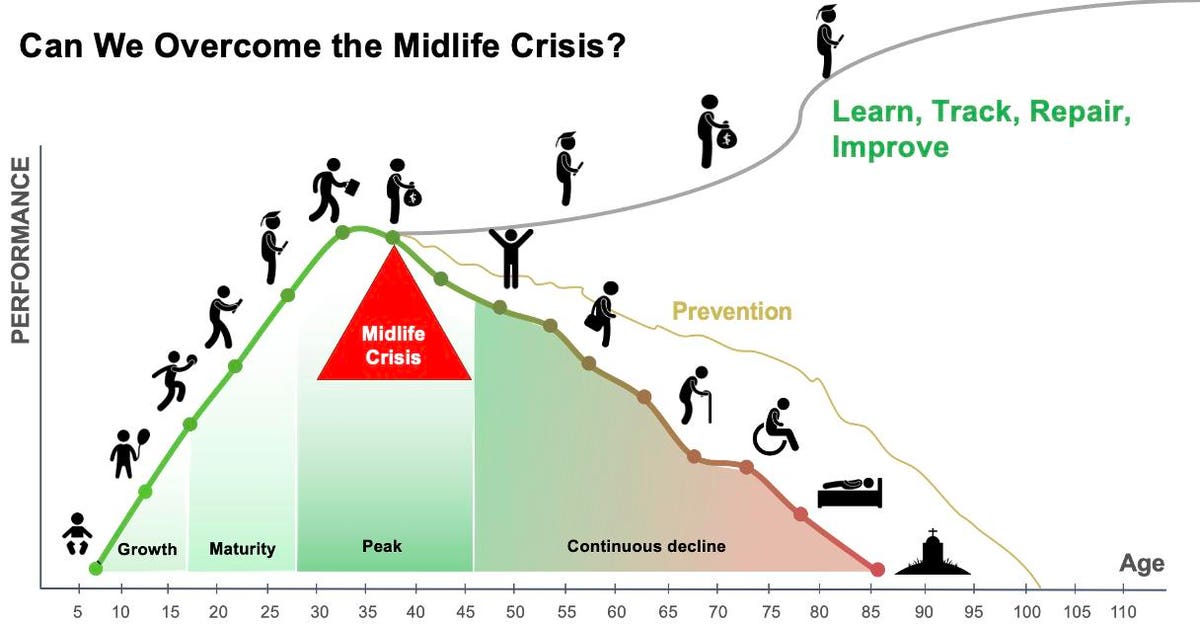
How Long Does a Midlife Crisis Usually Last?
The amount of time a person experiences the symptoms of a midlife crisis depends on the frequency of their feelings and how they choose to resolve them.
“Humans thrive on having a routine, and a crisis can easily disrupt this,” says Jackson. She suggests that finding the root of the feelings, working with them to develop a new, healthy routine and reprogram harmful thoughts into a helpful perspective will allow a person to move forward with greater satisfaction as they enter their later years.
How Does a Midlife Crisis Differ From Depression?
It’s important to understand the difference between the symptoms that result from a major life transition and a mental health condition.
Clinical depression is defined as a mental health disorder and mood-related condition, whereas a midlife crisis is not, says Jackson. Depression, also known as major depression or major depressive disorder, is characterized by symptoms that include chronic sadness, isolation, withdrawal, suicidal ideation and sleep disturbance.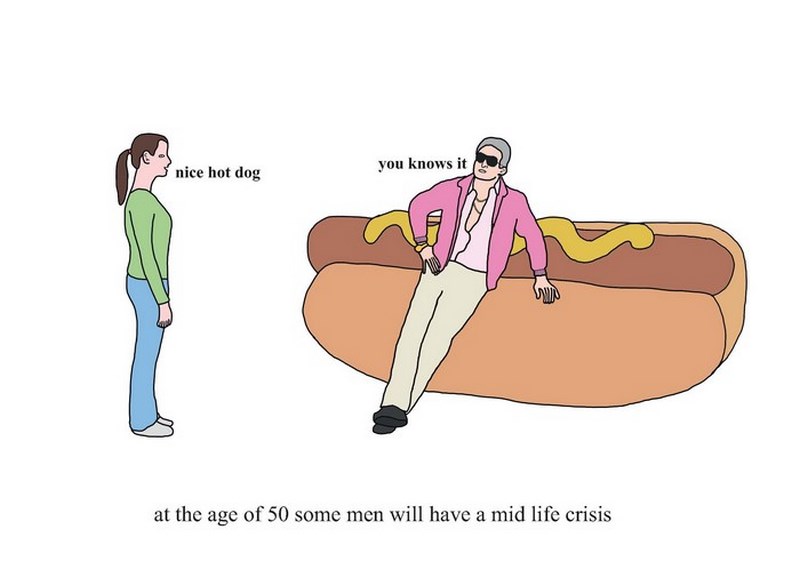 “A person would have to meet the criteria of a depressive episode as outlined by the DSM-V in order to be diagnosed with this issue,” says Jackson.
“A person would have to meet the criteria of a depressive episode as outlined by the DSM-V in order to be diagnosed with this issue,” says Jackson.
In some cases, the two conditions may be correlated, but causation is not mutual. The stress from experiencing a midlife crisis can result in mood changes or even a depressive episode, says Jackson. Conversely, “a depressive episode is not indicative of a midlife crisis. Depression can be experienced at any age and doesn’t have to be a response to a stressor,” she says.
Not everyone who experiences a midlife crisis will feel depressed, according to Dr. Wetter. However, “those experiencing a midlife crisis might make decisions or engage in actions that can trigger depression. It’s often when these types of consequences occur that someone will then seek out help—not because of the midlife crisis, but because of the consequences of an action or behavior that stemmed from the phase of life transition,” he says.
Are There Treatments for a Midlife Crisis?
Since a midlife crisis is not classified as a medical condition, there is no singular cure or course of treatment.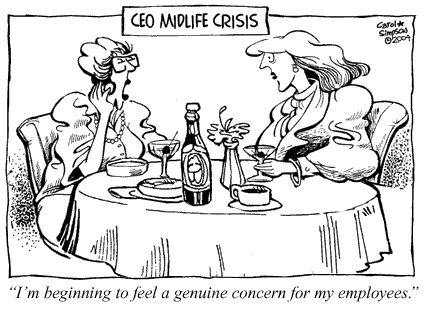 However, there are many options for those seeking help. To mitigate the effects of mood, behaviors or physical ailments related to midlife crisis symptoms and to reframe harmful thoughts into a healthier mindset and routine, experts, including Jackson and Dr. Wetter, often recommend seeking therapy with a licensed mental health professional.
However, there are many options for those seeking help. To mitigate the effects of mood, behaviors or physical ailments related to midlife crisis symptoms and to reframe harmful thoughts into a healthier mindset and routine, experts, including Jackson and Dr. Wetter, often recommend seeking therapy with a licensed mental health professional.
Rather than a condition to treat, “a midlife crisis is something to be processed, contemplated and explored,” says Dr. Wetter. “Therapy can also help minimize the chances of acting impulsively to the point of causing unintended negative consequences.”
You May Also Be Interested In Online Therapy Services From Our Featured Sponsors
Talkspace
Learn More
On Talkspace's Website
Our ratings take into account a product's rewards, fees, rates and other category-specific attributes. All ratings are determined solely by our editorial team.
Therapy Type
General, professional therapy
Starting Cost
$65 per week
Key Feature
Therapists have 9 years of experience on average
Subscription Includes
Live chat, live phone sessions, live video sessions
Cerebral
Learn More
On Cerebral's Website
Our ratings take into account a product's rewards, fees, rates and other category-specific attributes. All ratings are determined solely by our editorial team.
All ratings are determined solely by our editorial team.
Therapy Type
General, professional therapy
Starting Cost
$259 a month
Key Feature
Therapists available morning, night, weekdays and weekends
Subscription Includes
Live phone sessions, live video sessions
BetterHelp Online Therapy
Learn More
On BetterHelp's Website
Our ratings take into account a product's rewards, fees, rates and other category-specific attributes. All ratings are determined solely by our editorial team.
Therapy Type
General, professional Therapy
Starting Cost
$65 per week, 20% off first month
Key Features
Match with a license therapist in 48 hours
Subscription Includes
Live chat, live phone sessions, live video sessions
(Note: Product details and price are accurate as of publication and are subject to change. )
)
Who Can Help With a Midlife Crisis?
Help can come in many forms and is essential to navigating a crisis and moving through major life transitions, such as those experienced in midlife.
While family members or friends can be a great support during this time, a clinical psychologist or highly skilled therapist might be the most beneficial resource, according to Dr. Wetter. “Psychotherapy is a perfect modality and intervention for those moving through a midlife transition or crisis,” he says, as it is an intensely personal approach that provides a protected and private space in which a person can explore inner conflict, thoughts and perceptions of relationships without fear of judgment or negative assumption.
Jackson recommends cognitive behavioral therapy (CBT), which helps challenge unhelpful thoughts and gives people the opportunity to better understand their beliefs and values. “A major key here is to reset the mindset,” explains Jackson. “Because much of a midlife crisis is a disconnect between a person’s self-worth and their life outlook, it can be helpful to reframe the midlife crisis as an opportunity to reset or reestablish their vision for their life.” She also notes that If there have been mood or physical ailments due to the crisis, medication (from a qualified health professional) and nutrition improvements can be helpful in addressing those symptoms.
“Because much of a midlife crisis is a disconnect between a person’s self-worth and their life outlook, it can be helpful to reframe the midlife crisis as an opportunity to reset or reestablish their vision for their life.” She also notes that If there have been mood or physical ailments due to the crisis, medication (from a qualified health professional) and nutrition improvements can be helpful in addressing those symptoms.
Additionally, therapy can allow a person to see that there’s room for positive growth during midlife transitions and can help resolve the crisis more efficiently. “It can help illuminate new possibilities and opportunities to engage in life, enhancing relationships and ending formerly destructive behaviors and patterns,” says Dr. Wetter.
Helping a person reestablish a routine that supports wellness is very beneficial to quality of life in later years, too, and the root of this work is to identify the source of a midlife crisis, according to Jackson. “It’s important to acknowledge how this life change has affected [a person] and take steps towards healing.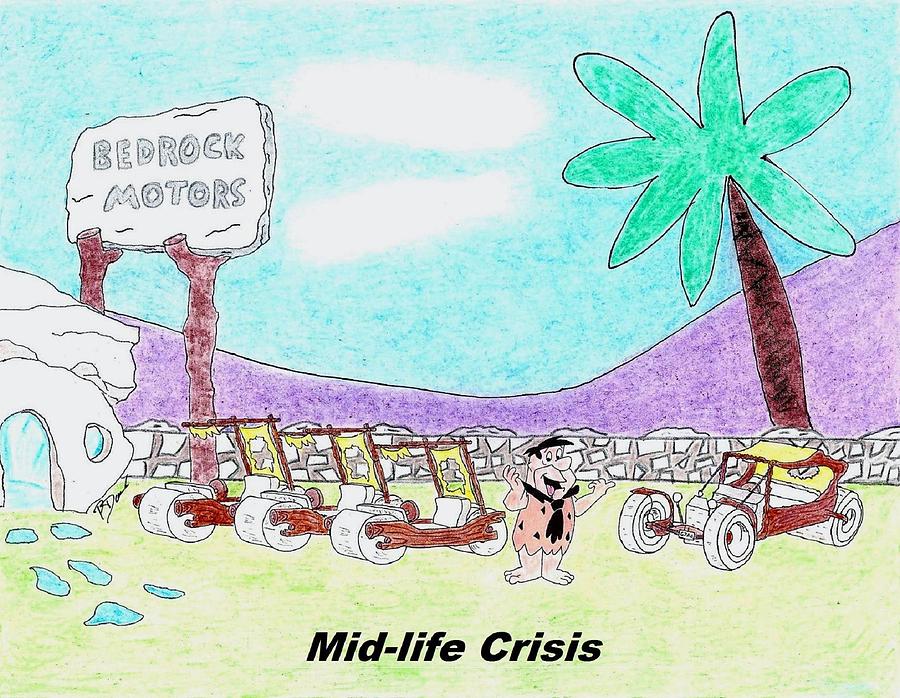 ”
”
You Deserve To Be Happy
Asking for help takes strength. BetterHelp can match you with a professional, licensed and vetted therapist from any device.
Get Started With 20% Off
How to Recognize and Conquer - Women's Magazine GOLD
Bridget Jones wrote: "Everyone knows that when you are over thirty, you are no longer as happy, cheerful and frivolous as you were at twenty-two." In the language of psychologists, this is called a "midlife crisis."
Bridget Jones wrote: “Everyone knows that when you are over thirty, you are no longer as happy, cheerful and frivolous as you were at twenty-two.” In the language of psychologists, this is called a "midlife crisis" - each of us goes through this stage. nine0008
Share:
What is a midlife crisis?
The symptoms are recognizable: in your thirties or forties, you begin to feel that the career you have chosen is absolutely not what you would like to do all your life. In your personal life, too, everything is not going smoothly: you begin to acutely experience age-related changes, you are afraid to stop being sexually attractive. You think that life needs to be rethought and changed. You doubt the correctness of your life path and relationships. nine0003
In your personal life, too, everything is not going smoothly: you begin to acutely experience age-related changes, you are afraid to stop being sexually attractive. You think that life needs to be rethought and changed. You doubt the correctness of your life path and relationships. nine0003
All these thoughts are a sign of an approaching midlife crisis. You will rightly object: well, who doesn’t feel like this at 30, at 40, at 50? Actually, value-personal crises are characteristic of any age limit. At 25, you realize that you can no longer have the same reckless fun as at 18, and at 40 you feel the fear that half of your life is behind you, you look back and convulsively go over in your head what exactly you didn’t have time for.
See also: 7 express techniques to fight stress and fatigue >>>>>
Some psychologists believe that the midlife crisis itself occurs in the interval from 30 to 40 years, others distinguish a segment from 35 to 55 years. In women, the crisis lasts from 2 to 4 years, in men - up to 10 years. At the same time, such a depressive state turns out to be contagious in a way for a couple: if a person is faced with a midlife crisis, then his partner soon begins to think the same way.
At the same time, such a depressive state turns out to be contagious in a way for a couple: if a person is faced with a midlife crisis, then his partner soon begins to think the same way.
How to recognize the coming crisis? nine0041
* You suddenly become acutely worried about your health for no apparent reason.
* Are you seriously thinking about how to prolong your youth: plastic surgery, operations.
* You constantly look back and think how good it was 10, 20 years ago.
* You find classmates and fellow students in social networks, look at their life and think that it is more successful than yours.
* You stop celebrating birthdays and begin to be ashamed of your age, keep silent or laugh it off instead of answering the question of how old you are. nine0003
What are the stages of a crisis?
Dr. Jim Conway described the stages of a midlife crisis based on six stages of grief acceptance: a person experiencing a crisis first experiences denial.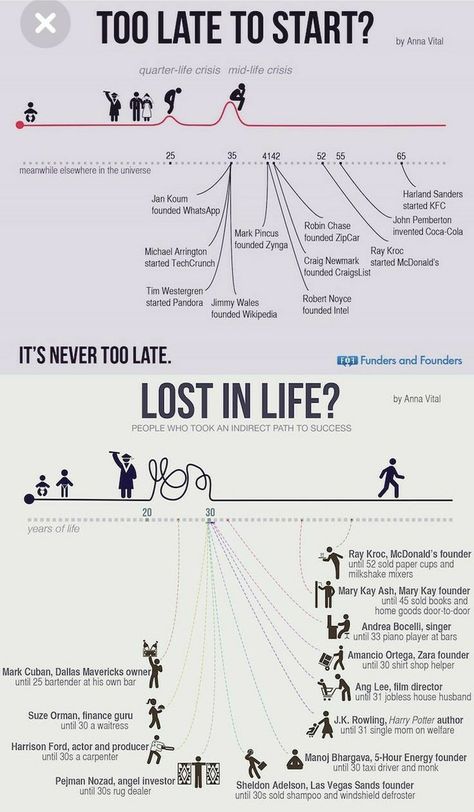 He tries in every possible way to pretend that there is no crisis and age is not important, and he connects the growing disappointment from life, say, with the weather or a bad mood and problems at work.
He tries in every possible way to pretend that there is no crisis and age is not important, and he connects the growing disappointment from life, say, with the weather or a bad mood and problems at work.
Second stage - anger . A person is imbued with those thoughts that he stubbornly drove away from himself. He becomes an eater, aggressive, irritable, wants to quit everything, change and go to Goa as a downshifter. nine0003
Third stage - replay . In its manifestation, it resembles a teenage rebellion: a person begins to desperately strive to do everything that, as it seems to him, he did not have time, leaves his family, work, goes on a long trip, radically changes his appearance, lifestyle, hobbies, company of friends.
See also: Pro-age. Why growing up naturally is fashionable and profitable >>>>>
Overacting is followed by depression , because at some point the rebel realizes that all these changes are external and they do not bring relief. After depression comes detachment - a person stops directing energy outward and tries to look inside himself, comprehend what is happening. After all these ordeals, finally comes self-acceptance - a period of developing new goals, guidelines and gaining inner harmony at a qualitatively new level.
After depression comes detachment - a person stops directing energy outward and tries to look inside himself, comprehend what is happening. After all these ordeals, finally comes self-acceptance - a period of developing new goals, guidelines and gaining inner harmony at a qualitatively new level.
What to do?
* First, accept the inevitable, namely your age. A crisis is always about self-rejection, a conflict between the way you saw your conditional 30-40-year-old self and the one you see in the mirror. But, firstly, it will not work to change the past, and secondly, even if life had the function of rewinding back and living differently, you would still make other mistakes and regret them already. nine0003
* Look at yourself, analyze, note the qualities that you like in yourself. Remember your accomplishments and praise yourself for them.
* Think about what else you would like to achieve, try, what you would like to learn, soberly assess your strengths and capabilities.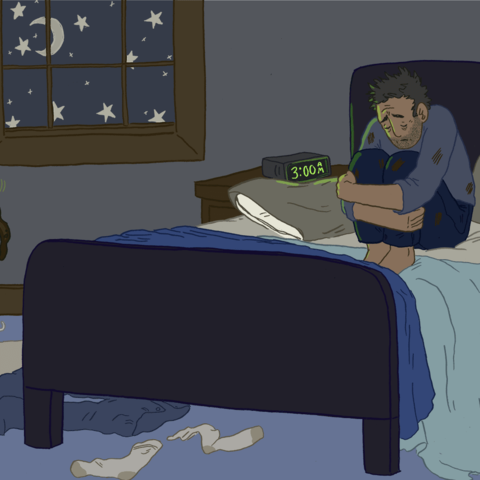 If forces and opportunities allow - do not doubt yourself, act!
If forces and opportunities allow - do not doubt yourself, act!
* Don't be afraid to seek help from loved ones: family and true friends will always be with you, regardless of your self-doubt. nine0003
The very word "crisis" sounds catastrophic. Psychologists propose to call the state differently - "transitional period". This is indeed closer to the truth: we need this period to review our goals and priorities. By the age of 30-40, we gained life experience, which, if we remember, helped us out more than once. Yes, the years go by, but we use them wisely, we learn our lessons and, like good wine, we only get better with time.
Vilena Vvedenskaya
Ten signs that you are having a midlife crisis (and what will happen next)
A lot has been written, filmed and spoken about the midlife crisis. But few people know exactly what kind of condition it is, at what age it occurs, how it proceeds, what causes it and how to experience it.
What is a midlife crisis?
First of all, a midlife crisis (MSC) is a personality crisis associated with a reassessment of one's own values and achievements, fears of aging and loss of sexual attractiveness (men) and menopause (women). It is experienced by both men and women, but it is more pronounced and sharper in men. nine0003
In Russian-language sources, SWR refers to the age of 30-40 years. In the West they speak of a gap of 40-60 years.
How long does it last?
Let's embrace men: they suffer from this crisis from three to 10 years, while women can cope with a difficult period in 2-4 years (try to refrain from jokes about the weaker sex).
Some experts even believe that this condition is contagious. For example, if the SWR started in one of the spouses, then the second one is at risk. nine0003
SWR Signs
You are most likely already going through SWR if you:
- Have suddenly begun to worry about your health.
- Seriously thinking about plastic surgery and Botox.
- Constantly thinking that your life did not go the way you would like.
- Actively trying to catch up in youth (hello, Harley, Porsche, extreme sports).
— You often experience anxiety and sadness, and are generally dissatisfied with your life. nine0003
- Downshift. For example, we went to India to grow carrots.
- Looking for old girlfriends and high school boyfriends on social media.
- Can hardly hold back tears at the sight of the hair on the comb.
— Order a special photo session for social networks.
- You smile mysteriously when asked about your age.
(Of course, the list is not exhaustive, and none of these items in itself is a diagnosis. But each of them indirectly confirms the picture). nine0003
Psychologists and researchers also associate SWR with job satisfaction. However, it is in middle age that the joy from what you do falls rapidly. And SWR is not a life failure of a particular person, but a natural and logical period that the majority expects. So, if you are already packing your bags and planning to move to the Tver region and divorce your wife, husband, dog and aquarium fish, do not blame yourself. The same is experienced by a huge number of your peers around the world. nine0003
So, if you are already packing your bags and planning to move to the Tver region and divorce your wife, husband, dog and aquarium fish, do not blame yourself. The same is experienced by a huge number of your peers around the world. nine0003
How It Works
Dr. Jim Conway described the six stages of a crisis based on the stages of mourning by Elisabeth Kubler-Ross. However, Jim Conway used only the names of the stages, but the description became the original concept.
1. Denial
This stage, according to Dr. Conway, is rather quiet. We feel our age, but we try to pretend that we do not notice the changed physical capabilities of our body, the fall in libido and other things. nine0003
It becomes very noticeable that the spouse does not look the same as at the beginning of the relationship. But at this stage, people diligently drive away these thoughts that cause discomfort.
2. Anger
This stage is a natural continuation of the denial stage.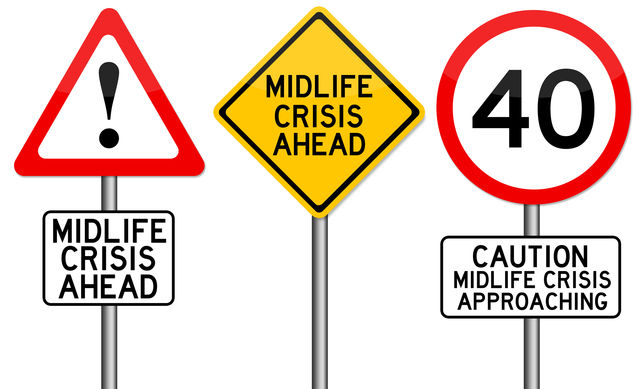 Everything that a person did not want to think about before now overflows. Thoughts that have been carefully hidden can no longer remain in the shadows and begin to scroll in an obsessive motive. It makes us angry, infuriates us. Irritability, critical remarks, unpleasant sarcasm and outbursts of anger are characteristic of this stage. It is also during this period that we begin to think that it is time to change everything: work, family, appearance, lifestyle, friends and much more. nine0003
Everything that a person did not want to think about before now overflows. Thoughts that have been carefully hidden can no longer remain in the shadows and begin to scroll in an obsessive motive. It makes us angry, infuriates us. Irritability, critical remarks, unpleasant sarcasm and outbursts of anger are characteristic of this stage. It is also during this period that we begin to think that it is time to change everything: work, family, appearance, lifestyle, friends and much more. nine0003
3. Replay Stage
This is the first stage in which bright flashes of incomprehensible irrational behavior appear. This is the stage when we try to play back, to live what we dreamed about, to catch up. This is the stage of betrayals and red sports cars. Men put on leather jackets and bandanas, and women go to the plastic surgeon (or vice versa). This is reminiscent of a teenage rebellion against society, but much more expensive, crushing, with irreversible consequences. The time of total egoism, passing under the slogan "I have lived for all of you for so many years, my time has come.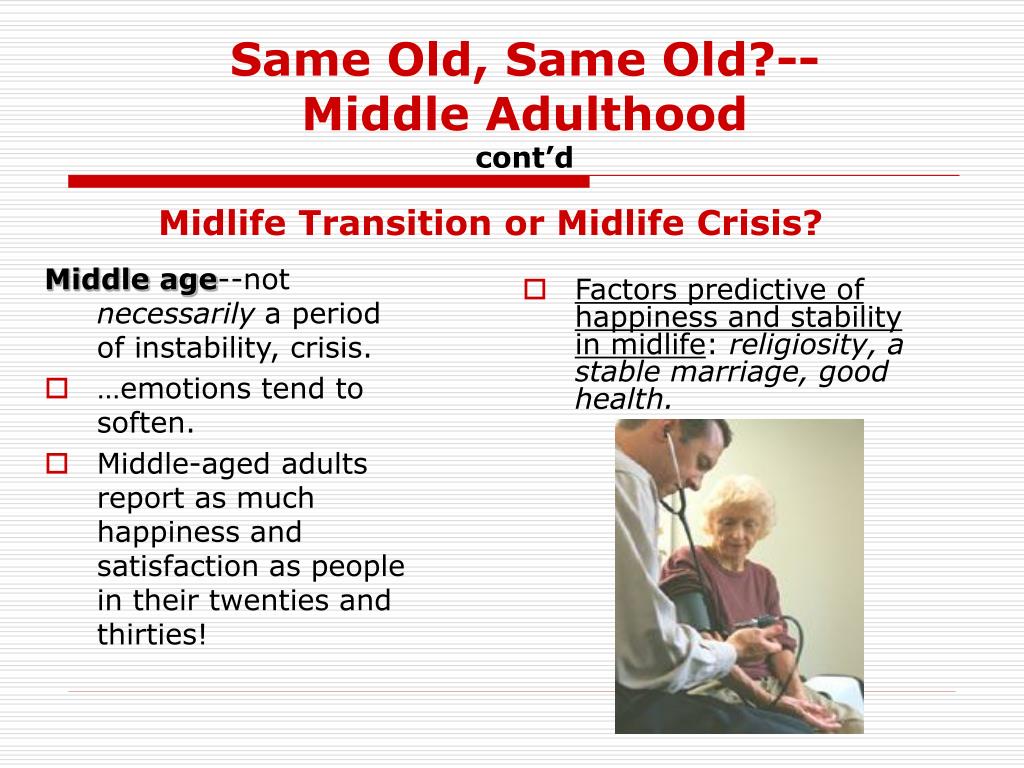 " nine0003
" nine0003
This is the longest stage, and its ending depends on which paths we choose to fully win back this rebellion.
4. Depression
This stage also follows logically from the previous one. We understand that everything that happens to us happens inside, and no external changes (new partner, new job, new appearance) can bring relief. And then we are overtaken by the thought of a dead end. As well as the consequences of our decisions made in the previous stage: divorce, damaged relationships, financial troubles, loneliness, and so on. nine0003
This is a difficult stage, but no one can go through it for us. This is our and only our way. Attempting to delay the passage through the depression stage or return to the previous stages can only prolong the SWR.
5. Withdrawal
The boundaries between the previous stage and the current one are blurred. Depression and detachment allow us to dive deeper into ourselves and finally face all our inner problems.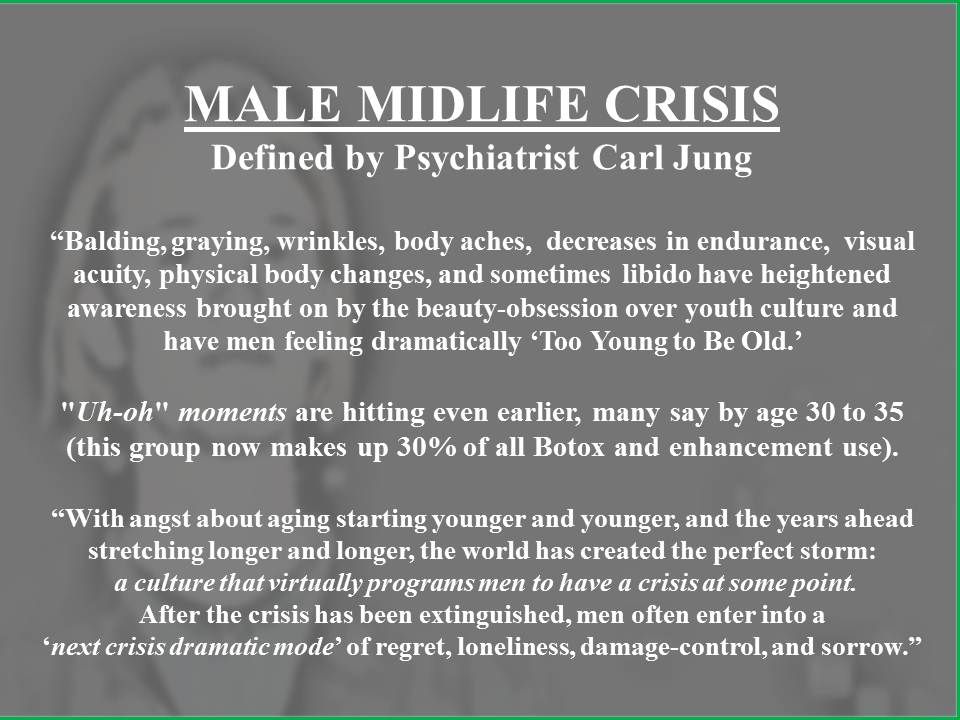 Unlike the previous stages, where experiences were directed outward, this stage is turned inward. This is a period of reflection on what is happening and an attempt to find the origins and new solutions. The external manifestations of this stage do not differ from the stage of depression, but inside there is a lot of work to resolve the main question: is this the end or a new beginning? nine0003
Unlike the previous stages, where experiences were directed outward, this stage is turned inward. This is a period of reflection on what is happening and an attempt to find the origins and new solutions. The external manifestations of this stage do not differ from the stage of depression, but inside there is a lot of work to resolve the main question: is this the end or a new beginning? nine0003
6. Acceptance
Those who have passed the previous stages are now at the finish line: the stage of acceptance. This stage is divided into three stages.
The first step resembles a sharp insight. We begin to realize how much damage has been done to our lives and that we can not escape from the sudden realization of what is happening. It is no longer possible to hide behind the illusion of being right. It's time to face the truth, collect stones and apologize.
If your partner or loved one is at this stage, try to avoid the judgmental "I told you". At this stage, the feeling of guilt is already all-encompassing.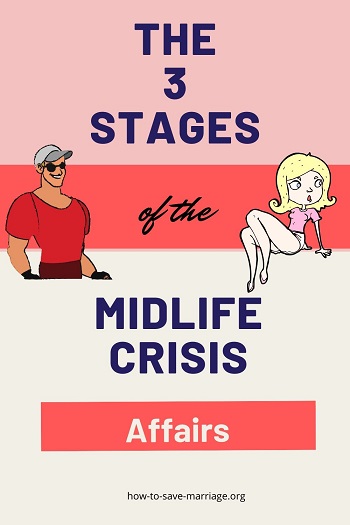 nine0003
nine0003
In the second degree, an unexpected rollback to previous stages may occur. But don't be afraid. This is just a short trip back to finally say goodbye to the past.
The third stage is the time of the last brief rebellion against the world. This is no longer a protracted self-destruction, as at the replay stage. This is an attempt to cope and digest all the pain that a person experiences. After the third step comes peace and acceptance of yourself and your mistakes.
What to do if it's all about you
You should know that SWR is not only about destruction, but also about creation.
On the one hand, we are used to thinking that SWR is alcohol, drugs, riding a motorcycle without a helmet, promiscuous and unprotected sex, leaving the family and other types of destructive behavior.
However, today more and more specialists speak of SWR not as a crisis, but as a transitional period of middle age. And unlike the term “crisis”, which refers to something catastrophic and is associated with depression, the term “transition” makes us understand that we need a difficult 3-5 years to rebuild our personality and revise our priorities.